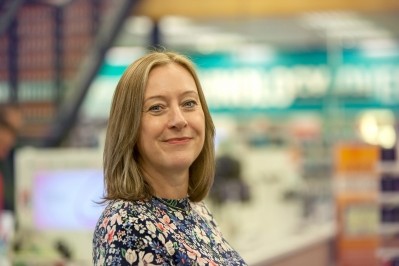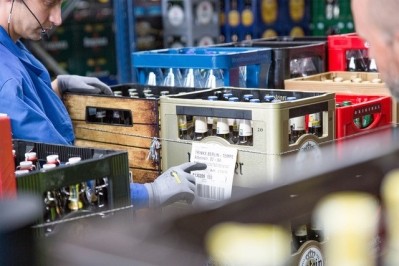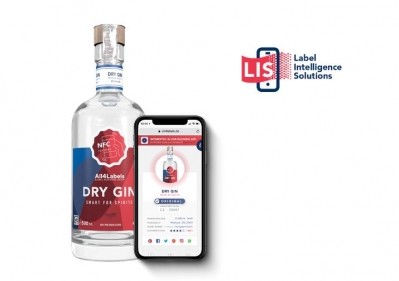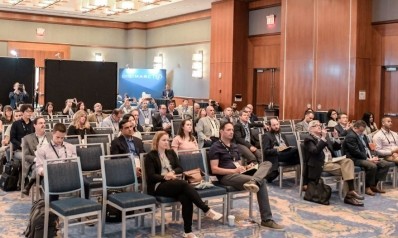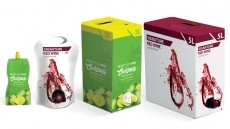AIPIA World Congress 2019
Coca-Cola turns to Intelligent Packaging to resolve drinks’ packaging waste
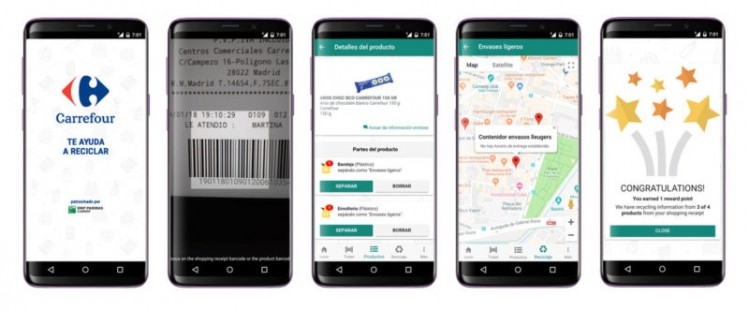
Based on its deposit return schemes (DRS) the company wants to make recycling easier and more accessible for everyone and has come up with a set of rules for the event entitled; ‘The Challenge –Augmenting DRS and beyond’.
A World Without Waste
Coca-Cola will follow up directly with individual companies to further explore concepts that it can pursue as a result of the challenge.
Patrick Etesse, packaging manager, The Coca-Cola Company, told BeverageDaily: “We see Deposit Recovery Schemes as the way forward to turn waste into worth and address packaging pollution.
“Smart packaging is another forward trend and the question we are asking is how the two trends can come together and materialise to help achieve Coca-Cola’s objective of a ‘World Without Waste’.
“The AIPIA conference looks like a logical forum to ask that question.
“In terms of technology, we do not want to be too prescriptive but clearly we favor technologies that will drive frictionless consumer engagement to recycle. NFC labels offer interesting possibilities once they become affordable for mainstream FMCG packages. We think this will happen once NFC is produced via printed electronics in very large volumes.”
According to James Quincey, president/CEO, The Coca-Cola Company, consumers expect companies like Coca-Cola to be the leaders and help towards making a litter-free world possible.
“With our drinks’ packaging among the waste that ends up littering our countryside, communities and beaches, we know we’ve got a real responsibility to address the world’s packaging problem,” he said.
“We’re setting ourselves a massive global ambition: by 2030 we aim to help collect and recycle a bottle or can for every single one we sell.”
The Challenge
As part of the challenge, Etesse said although there are many benefits to the implementation of DRS, there are also disadvantages. The first disadvantage is the costs of implementation and functioning of these systems.
“For the country, region or retailer implementing it, it means installing enough collection points to make the collection possible everywhere. Those collection points are often reverse-vending machines that can cost more than €40,000,” he added.
“In addition to this primary cost, transport, maintenance, and administration of the systems constitutes significant expense and can also have its own environmental impact. As a result, primarily to contain costs, the collection infrastructure is centralized, requiring consumers to bring their waste packaging to designated central locations.”
The challenge Coca-Cola proposes is how smart packaging can contribute to address the disadvantages (outlined above) whilst improving consumer convenience to recycle and engaging consumers in the process.
He said Coca-Cola is aware of various attempts to use smart packaging to incentivize consumers to recycle such as, for example, the partnership between EVRYTHNG and Recycl3R in Spain or the Reward4Waste initiative in the UK to transform the way consumer packaged goods are recycled.
“But, how can we take it to the next level and engage all consumers to recycle via smart packaging?” said Etesse.
Terms of the challenge for participants include:
• Entries should focus on maximizing consumer convenience & acceptance to enable consumers to recycle with maximum efficiency & minimum effort.
• The designs should be inclusive of consumers who are not interested in yet another app or who do not have access to a smartphone every time they want to recycle.
• They should integrate seamlessly into existing and upcoming DRS across Europe whilst making it easy and convenient for consumers to recycle.
• The proposed solutions should complement & augment existing DRS but also function when conventional DRS infrastructures (retail take back infrastructures or reverse vending machines) are deficient.
• Thinking even further, how could the designs provide the basis for a standardized technology for Europe and, more widely, the entire world?
The ‘Challenge Pitch’ can cover one or more of Coca-Cola brands.
Presentation content (at the AIPIA event) should include Coca-Cola brands including brand identity, language and image such that the proposals are relevant to their products, needs and philosophy.
All technologies should keep cost of goods, sustainability and recyclability in mind. Functional prototypes and/or demonstrations are welcome to better showcase the technology and its application to Coca-Cola products and packaging.
As an example, Etesse mentioned Carrefour Spain which launched the application ReciclaYa, a mobile application that allows customers to receive information on how to properly recycle their products and obtain points for each recycling action. These points can be exchanged afterwards for discounts on their next purchase.
The tool is sponsored by BNP Paribas Cardif and supported by brands Campofrio, Coca Cola, Danone, Font Vella, Lanjaron, Mahou San Miguel, Mars, Mondelēz, Calidad Pascual, PepsiCo, Procter & Gamble, Solán de Cabras and Unilever.
The system uses the Internet of Things to provide unique digital identities to the products that are purchased and allows the tracking of each product unit throughout its life cycle.
It combines the capabilities of EVRYTHNG smart products platform and rewards for recycling are developed by recycl3R.
Another example is Reward4Waste deposit return scheme, a circular-economy system for single use containers that rewards the consumer for doing the right thing.
Reward4Waste is CryptoCycle’s first platform that utilises blockchain technology to deliver a Deposit Return Scheme (DRS) that will eliminate fraud and increase recycling rates.
Reward4Waste offers an easy way to redeem deposits on single use plastic bottles through an app, increasing recycling rates and improving the environment in local areas and the country as a whole. With trials running in 2019, this project is ready to take a running start and fight Britain’s single use plastic problem head on.
Zero Waste Europe
According to Zero Waste Europe, DRS have proven to be efficient systems to collect plastic bottles – among other items –to reuse or recycle them. As such, they are being considered as part of the waste solution that should be implemented across Europe.
There are many benefits of implementing DRS. The most obvious one is the environmental benefit. By putting a financial incentive to bring containers back for recycling, rather than discarding them, deposit return schemes ensure more materials can be kept in the system.
In terms of quality, DRS provide high outputs as they rely on separate collection, and therefore provides high-quality materials, allowing bottle-to-bottle recycling. This leads to a reduction of both discarded waste and natural resources extraction – as producers have access to a larger amount of secondary raw materials.
In Europe, until now, 10 countries have already implemented deposit return schemes: Croatia, Denmark, Estonia, Finland, Germany, Iceland, Lithuania, Netherlands, Norway, and Sweden. All of which have achieved significant results. And more countries are about to follow.
For more details about the Coca-Cola challenge, please contact Eef de Ferrante at AIPIA. Coca-Cola has chosen the AIPIA’s World Congress to host this challenge recognizing that packaging innovation creates brand value and builds a personal connection with consumers.
The AIPIA World Congress will be held at Amsterdam Conference Centre Beurs van Berlage from November 18-19, 2019.

